Commercial rate increase ‘final kick’ for many Cork city businesses
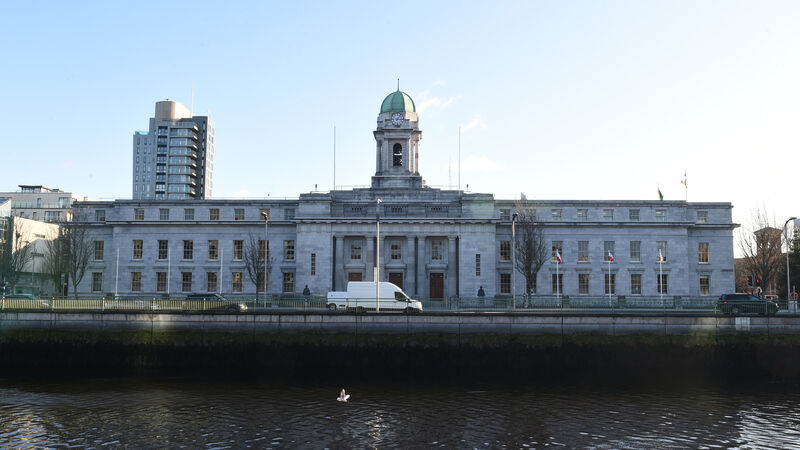
The main contributors to the increase in expenditure compared to last year are a €14.9m increase in homeless funding; an €8.7m increase in Capital Advance Leasing Facility (CALF) funding/repair and lease, a €1m increase in Local Area Committee funding, a €1m increase in the Disabled Person’s Grant fund and a €650,000 increase in footpath repairs and tree management.
A commercial rates increase of 5% approved by Cork city councillors on Wednesday night will be “the final kick” for many city centre businesses, a pub owner has said.
The budget for Cork City Council is €362.2m for 2026, representing an increase of approximately €35.7m over last year's.
Chief executive Valerie O’Sullivan said that the budget's preparation had “proven to be very challenging”, and that income from commercial rates represents 30.4% of the council’s total income.
She said: “Since 2009 the City Council has increased commercial rates by a cumulative 5% in those 16 years. This is far below the cumulative inflation rate for that 15-year period. However, in order to produce a balanced budget, it will be necessary to have a rate increase of 5%.
“The City Council recognises the significant challenges facing commercial rate payers, especially the smaller businesses."
As a result, the City Council is reintroducing a rates incentive scheme which will give a rebate of 4% for all ratepayers who have an annual rates liability of up to €4,000. Those with rate accounts from €4,001 to €10,000 will receive a rebate of 2%.
“This means that 75% of all ratepayers will benefit from the rate incentive scheme. Accordingly, these ratepayers will experience an increase of between €8 and €290 on their rates bill, which equates to an increase of between €0.15 and €5.57 per week,” Ms O’Sullivan said.
It comes as last year, councillors refused council management’s proposals to increase commercial rates for traders by 2.5%.
Michael O’Donovan, owner of The Castle Inn bar and president of the Vintners Federation of Ireland told : “This will be a strain, and for a lot of businesses it might be the final kick.
“Inflation is now 2%, and central government is bringing in new minimum wage and pension auto enrolment, so for local government to bring in a 5% increase, many businesses won’t be able to carry on.
“It’s really disappointing, so many businesses are already struggling and a 5% increase just seems like an excessive figure. It’s going to affect the bottom line, and for the people of the city too it’s going to affect jobs.
“We appreciate that the council is doing great work including on the public realm, but at present, there’s already too many businesses shuttered, and this will give cause to more. That’s the opposite of what everyone wants, we want to see the city’s independent indigenous businesses thriving.”
Cork Business Association (CBA) had called for the rate increase to be postponed in light of the escalating costs currently facing businesses, saying “businesses are already struggling" to stay viable.
They said the rates hike “will add yet another layer of financial strain — one that many simply cannot absorb.
"These mounting costs risk undermining the very foundation of our city’s economic resilience."
They added: “We fully recognise the need for Cork City Council to fund essential services and invest in the city’s future, so we call on central government to support this. We need to support business sustainability and protect local jobs. A rates increase now sends the wrong message to those who continue to invest in and champion our city despite increasingly difficult trading conditions.”
The CBA explained that for a business operating two medium sized bars or restaurants in the city, the 5% increase would equate to a €4,500 hit off their bottom line, or €11,000-12,000 for a hotel.
Sean McCarthy, owner of Paddy the Farmers and Tequila Jacks said: “We are facing continuous cost increases and it’s making business unsustainable,” saying that a rates increase at this critical time means “we will face more closures.”
Fianna Fáil, Fine Gael, Labour and Green party councillors voted in favour of the budget, as well as Independent Kieran McCarthy and Social Democrats' Niamh O'Connor. Sinn Féin's four councillors, People Before Profit's Brian McCarthy, the Worker's Party's Ted Tynan, Independent Ireland's Noel O'Flynn and Independents Paudie Dineen and Albert Deasy voted against.
Labour’s Peter Horgan told : “Critically, I see my role as a councillor to enhance and support footfall into the city centre. The most opportune way to encourage footfall is through festivals, in my view.
“The support that this budget can give to festivals will directly impact footfall in the city centre. I have raised the matter of the rates increase with business people in the city centre and stressed that they need to see what they're paying for but none have raised a concern with me on the rates. The information I have says that 78% of rate payers will receive a rebate and pay as little as an extra €8 to €261.”
The budget allows for €2.7m in grants for events, community, arts and sports, the footpath repair budget has been increased by a further €650k in 2026, and €600k will be allocated to each Local Area Committee to be spent on various projects.
It also provides funding for the newly established city centre directorate, economic development fund, and infrastructure for the Cork City Docklands regeneration project.
Fianna Fáil’s Seán Martin, chair of the local authority's finance committee, told : “We’ve been working for months on this, different party leaders. We want to progress works the council needs to get done,” and the budget includes increases in funding for estate resurfacing, footpath refurbishment, tree cutting and road line painting, as well as additional arts and sports grants, he said.
“From my perspective, we’re getting stuff done on the ground that we’ve never got done before.”
Lord Mayor of Cork, Fergal Dennehy, welcomed the adoption of the budget, saying: “From enhancing the city centre, through initiatives like the city centre wardens who started work this week, to parks and infrastructure, like the Marina and the revamped Bishop Lucey Park which opens on Friday, and housing delivery, with around 3,500 social and affordable houses under construction in the city directly by the city council and in collaboration with the Land Development Agency and Approved Housing Bodies, this budget reflects our shared commitment to building a better Cork.
“It prioritises investment in essential services that matter most to people’s daily lives and will enable us to maintain and improve the standards of service delivery, while also responding to emerging needs. We acknowledge that it includes an increase in commercial rates, a decision not taken lightly. This adjustment is necessary to sustain the level of service our city requires and deserves. However, we are equally committed to ensuring that ratepayers are supported through this transition.
“The rates rebate scheme will help businesses, particularly small and medium enterprises, in managing the impact of the rate increase. “We will continue to engage with the business community to ensure transparency, fairness, and access to the resources they need to thrive.”
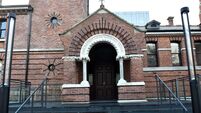
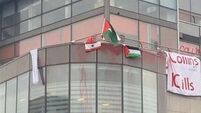
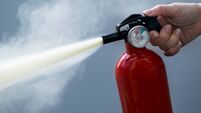
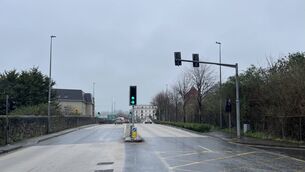
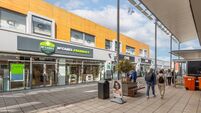


 App?
App?


